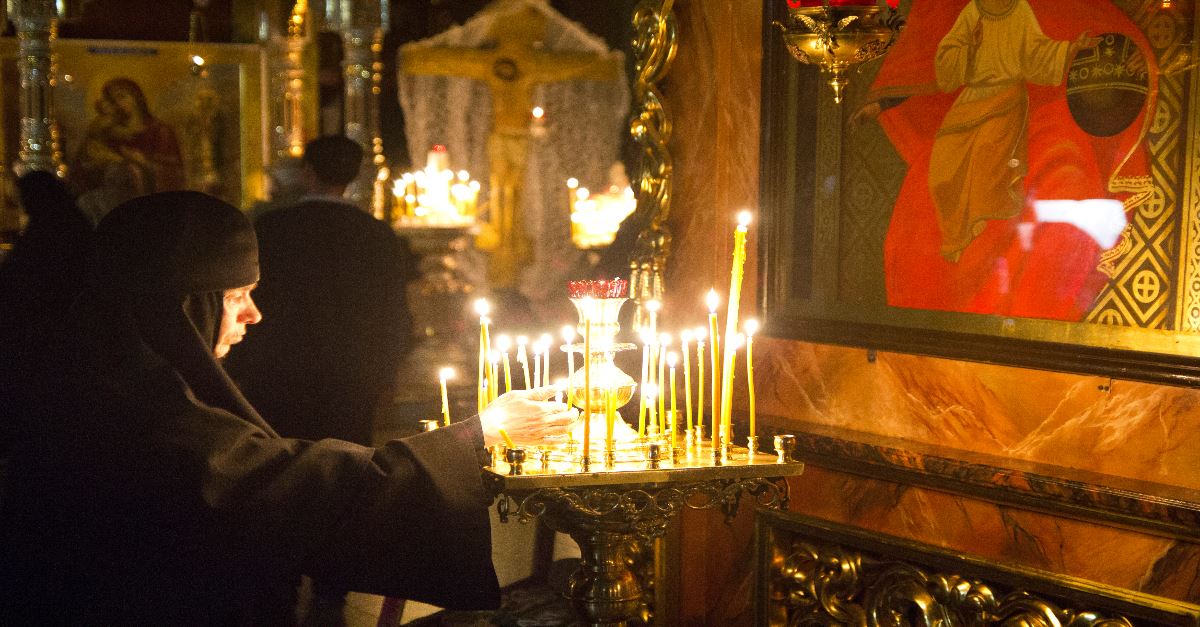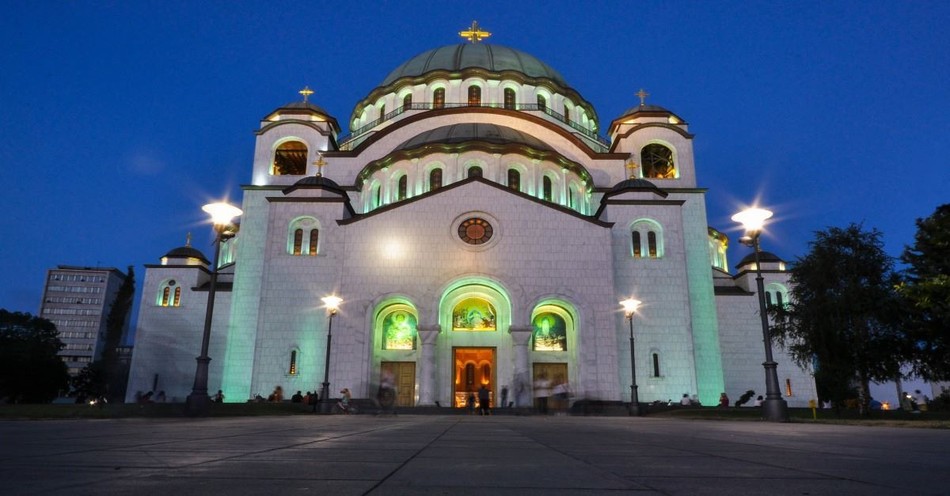Orthodox Definition and Meaning
Orthodox: (of a person or their views, especially religious or political ones, or other beliefs or practices) conforming to what is generally or traditionally accepted as right or true; established and approved.
Orthodoxy is belief or adherence to traditional or affirmed creeds, notably in religion. In the Christian sense, the term means "conforming to the Christian faith as represented in the creeds of the early Church." The first seven ecumenical councils occurred between the years of 325 and 787 A.D. with the purpose of establishing accepted doctrines.
In historic Christian use, the word orthodox relates to the collection of doctrines that were accepted by the early Christians. Several ecumenical councils were gathered over a period of several centuries in an attempt to establish these doctrines. The most notable of these historic declarations was that between the Homoousian doctrine, which became Trinitarianism, and the Heteroousian doctrine, called Arianism. The Homoousian doctrine, which characterized Jesus as both God and man with the canons of the 431 Council of Ephesus, won out in the Church and was referred to as orthodoxy in most Christian purposes since this was the understanding of early Christian Church Fathers and was confirmed at the ecumenical councils.
History of the Orthodox Church
Although originally the Eastern and Western Christians shared the same faith, the two sides began to separate after the seventh Ecumenical Council in 787 A.D. and are generally considered to have ultimately divided over the dispute with Rome in the Great Schism in 1054.
Notably, this schism happened from the papal claim to supreme authority and the doctrine of the Holy Spirit. The split became definitive with the failure of the Council of Florence in the 15th century.
Yet, in the determinations of the majority Orthodox, a crucial significance was the conquering of Constantinople in 1204 during the (Western Christian) Fourth Crusade. The sacking of Constantinople by the Crusaders eventually led to the loss of this Byzantine capital to the Muslim Ottomans in 1453.
Following the 1054 Great Schism, both the Western Church and Eastern Church continued to consider themselves uniquely orthodox and catholic. Augustine wrote in On True Religion: “Religion is to be sought ... only among those who are called Catholic or Orthodox Christians, that is, guardians of truth and followers of right.” Over time, the Western Church gradually identified with the "Catholic" label, and people of Western Europe gradually associated the "Orthodox" label with the Eastern Church (in some languages, the "Catholic" label is not necessarily identified with the Western Church). This was in note of the fact that both Catholic and Orthodox were in use as ecclesiastical adjectives as early as the 2nd and 4th centuries, respectively.

Photo from Wikipedia: An Orthodox nun lighting Worship Candles
Beliefs and Worship of the Orthodox Church
Eastern Orthodox Christianity emphasizes a way of life and belief that is manifested especially through worship. By preserving the traditional method of worshipping God, passed on from the very beginnings of Christianity. Eastern Christians maintain that they acknowledge the true doctrine of God in the right (orthodox) way.
The Bible of the Orthodox Church is that of most Western Churches, except that its Old Testament is based not on the Hebrew text but on the ancient Jewish translation into Greek called the Septuagint.
The wisdom of the Fathers of the Church is fundamental to the Orthodox way of life as today's successors of the "true faith and Church" passed on in its most authentic form. By maintaining the virtue of the received teachings of the apostles, followers are more conscious of the inspiration of the Holy Spirit being present both in history and in the modern-day.
Fasting and prayer represent an essential part of the Orthodox Christian life. Orthodox believe that fasting can be the "foundation of all good." The discipline of withholding food from the body can empower a believer to better focus the mind on preparing for prayer and spiritual matters.
There are four central fasting periods:
- The Great Fast or the period of Lent.
- The Fast of the Apostles: Eight days after Pentecost until June 28. The ends with the Feast of Saint Peter and Saint Paul.
- The Dormition Fast begins on August 1 and ends on August 14.
- The Christmas (Nativity) Fast from November 15-December 24
Orthodox Easter (Pascha)
Easter is the most meaningful and holy season of the Orthodox Church calendar. Orthodox Easter primarily commemorates the resurrection of Jesus Christ with a series of celebrations or movable feasts. In Eastern Orthodox Christianity, the spiritual preparations begin with Great Lent, 40 days of introspection and fasting (including Sundays), which starts on Clean Monday and finishes on Lazarus Saturday.
According to learnreligions.com, Clean Monday falls seven weeks before Easter Sunday. The term "Clean Monday" refers to cleansing from sinful behavior through the Lenten fast. Lazarus Saturday occurs eight days before Easter Sunday and signifies the end of Great Lent. Next comes Palm Sunday, one week before Easter, commemorating the triumphal entry of Jesus Christ into Jerusalem, followed by Holy Week, which ends on Easter Sunday, or Pascha.
Fasting continues throughout Holy Week. Many Orthodox churches observe a Paschal Vigil, which ends just before midnight on Holy Saturday (or Great Saturday). The last day of Holy Week is the evening before Easter.
The Orthodox Creed: Symbol of Faith
I believe in one God, the Father Almighty, Maker of Heaven and Earth, and of all things visible and invisible.
And in one Lord Jesus Christ, the Son of God, the only-begotten, begotten of the Father before all ages. Light of light; true God of true God; begotten, not made; of one essence with the Father, by Whom all things were made; Who for us men and for our salvation came down from Heaven, and was incarnate of the Holy Spirit and the Virgin Mary, and became man. And He was crucified for us under Pontius Pilate, and suffered, and was buried. And the third day He arose again, according to the Scriptures, and ascended into Heaven, and sits at the right hand of the Father; and He shall come again with glory to judge the living and the dead; Whose Kingdom shall have no end.
And in the Holy Spirit, the Lord, the Giver of Life, Who proceeds from the Father; Who with the Father and the Son together is worshipped and glorified; Who spoke by the prophets.
In one Holy, Catholic, and Apostolic Church. I acknowledge one baptism for the remission of sins. I look for the resurrection of the dead and the life of the world to come. Amen.
Orthodox Churches in America
The following list includes the largest Eastern Orthodox jurisdictions within the United States:
- American Carpatho-Russian Orthodox Diocese
- Antiochian Orthodox Christian Archdiocese of North America
- Greek Orthodox Archdiocese of America
- Orthodox Church in America
- Russian Orthodox Church Outside Russia
- Serbian Orthodox Church in the USA and Canada
Sources
Orthodoxy - Wikipedia.org
Eastern Orthodox Church - BBC
What Is Eastern Orthodox Easter? - learnreligions.com
Article Image of Church of Saint Sava, the largest Orthodox church in the world by Jorge Láscar




